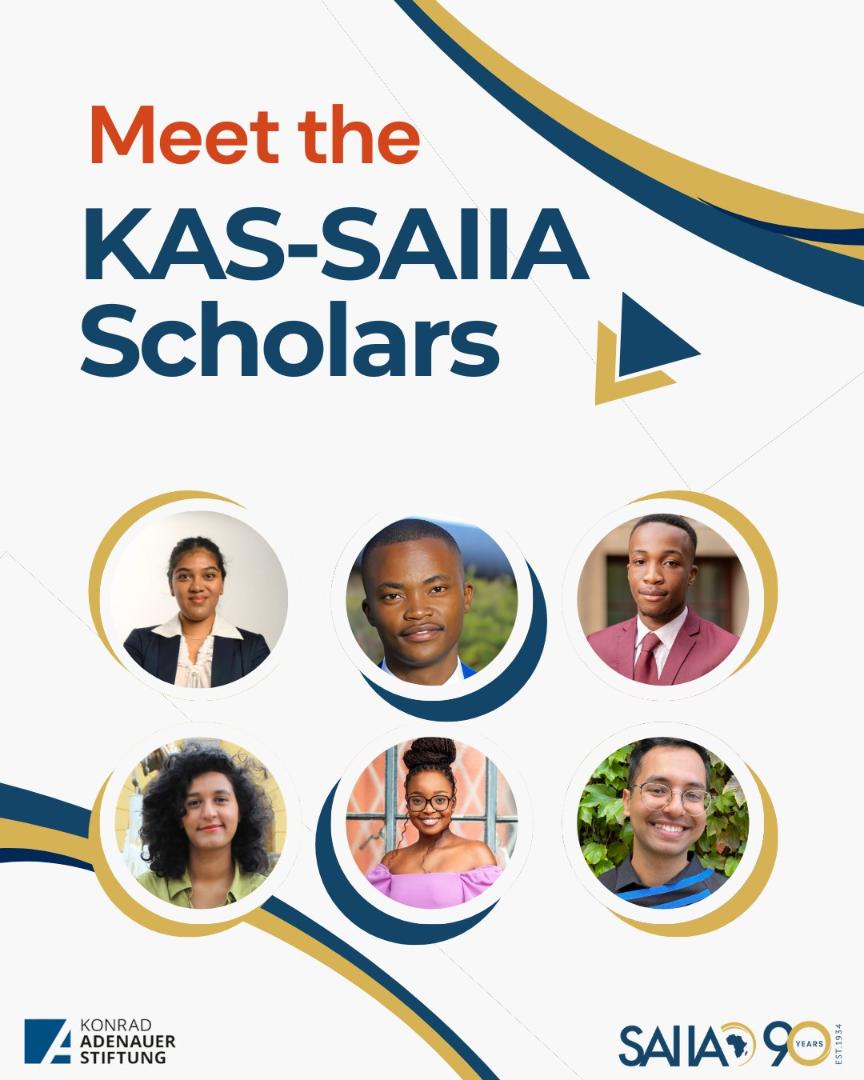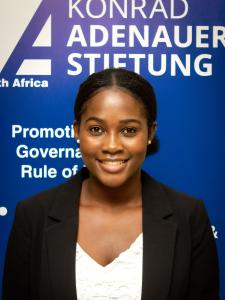The world continues to grapple with security challenges evinced by displacements, migration crises, and social and political turmoil. In Africa, the Sudanese war which broke out between two major rival factions of the military government in 2023, confrontations in the Great Lakes involving Uganda, Rwanda and Burundi and the Democratic Republic of Congo (DRC) and rebel groups plus peacekeeping transitions in Somalia and Libya are some of the pressing challenges. Further, Africa has limited adaptive capacity to climate change, with the Intergovernmental Panel on Climate Change (IPCC) arguing that it is the most vulnerable region in the world.[1]
According to the Regional Integrated model of Climate and the Economy (RICE) model climate damages in Africa, as a percentage of GDP, may be 10% higher than the next most exposed region (India) and more than twice as high as in the US, Russia, Eurasia and Latin America.[2] These discrepancies were also noticeable in specific sectors such as health, agriculture, and water, all of which demonstrate more relative vulnerability. These challenges worsen the potential for conflict, with contestations over access to resources as another driving force.
In light of this context, KAS and SAIIA invited the new scholars, staff, alumni, and experts to discuss the scholarship programme and its structure first, followed by a roundtable discussion on peace and security. The opening remarks included reflections by Dr. Holger Dix, Director of the PolDiSSA programme at KAS, who presented on the work of political foundations and linked KAS' work to its underlying principles, namely, freedom, justice and solidarity. His contributions underscored that the foundation is not "neutral" but value-based, promoting the social market economy in line with Konrad Adenauer's work, which united Christian-social, conservative and liberal traditions. As such, the foundation is closely associated with Germany's Christian Democratic Union (CDU) party.
Dr. Dix listed initiatives supported by the PolDiSSA programme, including collaboration with the Democrat Union of Africa (DUA), an alliance of centre-right political parties in Africa and its youth wing, YDUA; the African Policy Circle (APC), comprised of various think tanks across Africa; SAIIA, which is an institutional partner and the Election Bridge academy and KAS School for young politicians – both targeted at increase youth participation in politics, democracy and development.
Following Dr Dix's remarks, SAIIA CEO Elizabeth Sidiropoulos reflected on the decades-long partnership between the two institutions – KAS and SAIIA, recognising also, the alumni who had been a part of the programme since its inception and early stages. Elizabeth acknowledged progress, including South Africa's chairmanship of the Group of 20 (G20) and the inclusion of the African Union, which offered opportunities for more representation of Africa in key global for a and institutions. She also commented on developments in Eastern DRC and undiplomatic exchanges between the presidents of South Africa and Rwanda, which complicate peacebuilding and prospects for regional integration. The CEO noted that the killing of peacekeepers, including members of the South African National Defense Forces (SANDF)[3] showed a disregard for international law and presented further challenges to multilateralism.
Her remarks were followed by Dr. Phakamisa Siyothula, Director of the National Office for the Coordination of Peace Missions (NOCPM) at the DIRCO, who has held positions including Assistant Director of the African Union directorate and was posted as a diplomat to the United Nations in Geneva and other international organisations. Dr Siyothula shared his journey to joining the KAS-SAIIA fellowship programme in a context where online platforms were not as popular, spotlighting some of the differences in selection methods in the early 2000s and now. He commented on technological advancements, which have eased inter-regional travel and allow for online assessments and sharing of scholarship and employment opportunities in modern days.
However, this also comes with a set of challenges, including misinformation, disinformation and cybercrimes.
Dr Siyothula’s doctoral research focused on the resolution of conflict in Eastern DRC, which was timely following developments in this region from the last half of 2024. His insights interlinked conflict resolution with development, highlighting the differences in infrastructure and service provision between Kinshasa and Goma, for instance, and recommended inclusive development and increasing governance capacities to reduce opportunities for citizen radicalisation by the militia and rebel groups.
Noteworthy also is the role of regional mechanisms such as the Southern African Development Community (SADC) and the East African Community (EAC) in resolving this conflict, often challenged by national interests of negotiating parties. Regardless, the DRC shares a border with nine countries, and its destabilisation should be of interest to many, South Africa included, hence the deployment of military forces in conjunction with the Republics of Malawi and Tanzania.
2025 KAS-SAIIA Scholars
Six exceptional candidates were awarded the KAS-SAIIA scholarship for 2025; four will be based in Johannesburg, and two will be placed in the SAIIA Western Cape branch. The scholars are assigned a mentor with whom they will work closely over the course of the year and further develop their research, analytical and administrative skills. They will also actively participate in SAIIA's policy, research and dissemination activities.
The scholars are:
Divashnee Naidoo who is pursuing a master’s in International Relations at the University of the Witwatersrand. Her research aims to canvas the changing global order, focusing on the resurgence of the non-aligned movement. Divashnee is an advocate for human rights and rational, evidence-based policymaking. She is assigned to the Office of the Chief Executive.
Malibongwe Msimango who is pursuing a master’s in Comparative Politics at the University of Cape Town. He graduated from the University of Johannesburg with BA and Honours degrees in Politics and International Relations. Malibongwe’s research interests include youth participation, democratic institutionalism and strategic foresight. He is assigned to work under SAIIA’s Futures programme.
Muziwethu Ndlovu who is studying towards his masters in International Relations at the University of the Witwatersrand. His research focuses on the geopolitics of democratisation in the Global South, particularly the role of international actors in addressing entrenched authoritarianism. He has experience in macroeconomic policy, specifically in international trade policy, regional economic integration, value chain development and economic development. Muziwethu is placed in the Economic Resilience and Inclusion programme.
Rendani Tshitangano who is studying towards a master’s in Development Studies at the University of the Witwatersrand. Her research interests are democracy, political governance and socio-economic development. Rendani is assigned to work under the Youth@SAIIA Programme.
Tasneem Vania who is studying towards a master’s in International Relations at the University of the Witwatersrand. Her research focuses on the role of quasi-state actors in the MENA (Middle East and North Africa) region. Tasneem is placed with the African Governance and Diplomacy programme.
Yaseen Tayob who is pursuing a master’s in International Relations at the University of Cape Town. His research interests include global governance, African foreign policy, China-Africa relations and South-South cooperation. Yaseen is assigned to work under the Climate and Natural Resources programme.
Footnotes
[1] IPCC Assessment Report, 2022., Climate Change: Impacts, Adaptation and Vulnerability, https://www.ipcc.ch/report/ar6/wg2/
[2] African Development Bank, 2019., Climate Change Impact on Africa’s Economic Growth, https://www.afdb.org/sites/default/files/documents/publications/afdb-economics_of_climate_change_in_africa.pdf
[3]Deutsche Welle (DW) News., 2025, DR Congo: Peacekeepers killed in heavy fighting with M23, https://www.dw.com/en/dr-congo-peacekeepers-killed-in-heavy-fighting-with-m23/a-71410652
Über diese Reihe
Die Konrad-Adenauer-Stiftung, ihre Bildungsforen und Auslandsbüros bieten jährlich mehrere tausend Veranstaltungen zu wechselnden Themen an. Über ausgewählte Konferenzen, Events, Symposien etc. berichten wir aktuell und exklusiv für Sie unter www.kas.de. Hier finden Sie neben einer inhaltlichen Zusammenfassung auch Zusatzmaterialien wie Bilder, Redemanuskripte, Videos oder Audiomitschnitte.




